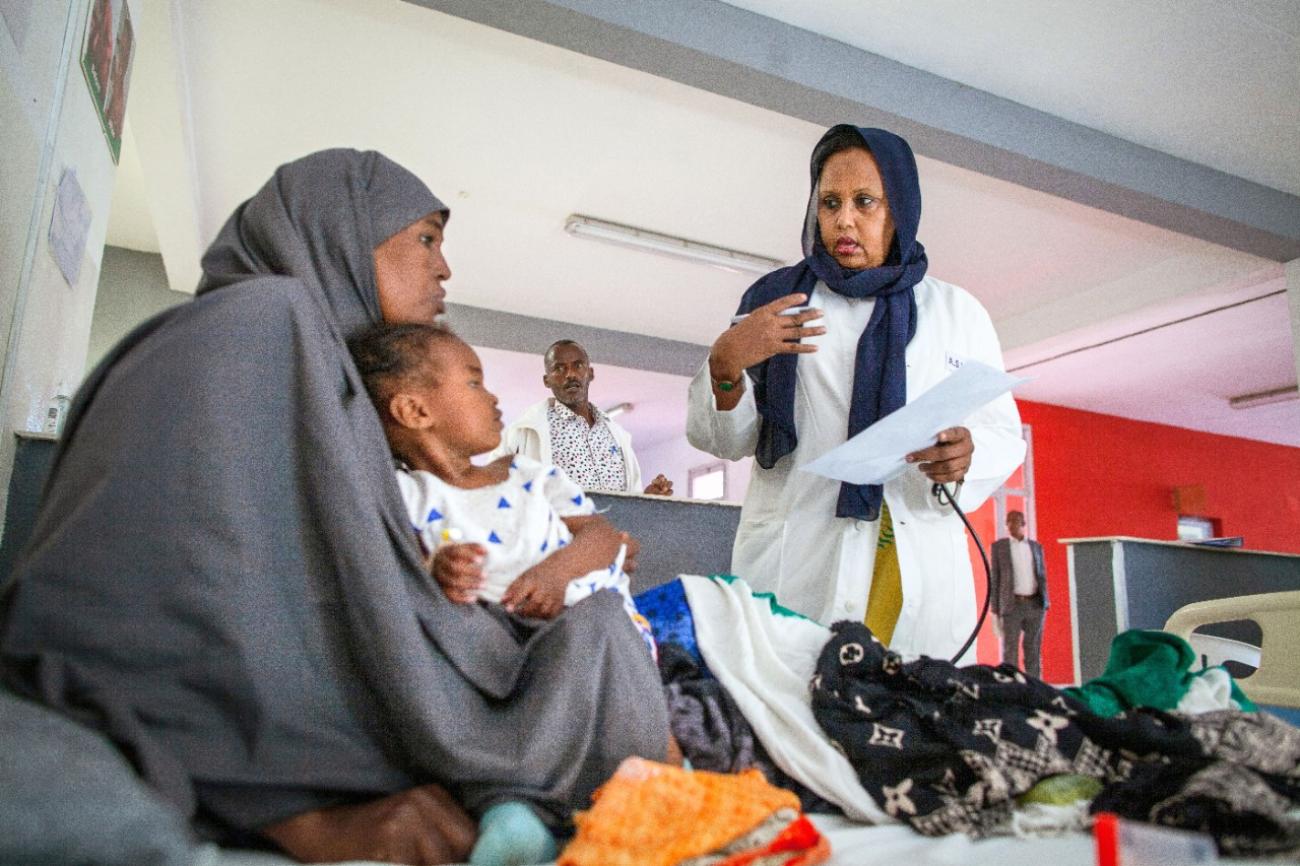Somaliland’s MAS Children’s Hospital treats nearly 100 kids every day – dealing with everything from trauma to premature birth to illnesses both large and small
It’s the biggest hospital in Somaliland, providing services to people who come from as far away as Ethiopia and the Dabaab refugee camp in Kenya.
This kind of caseload isn’t cheap to maintain, so when UNDP offered to provide a solar power system for the hot water – part of a programme to promote alternative energy use across the country – the hospital was keen to see the results.
With the savings, they’ve have been able to subsidise medicine and have hired extra cleaners, which is more important than ever now that COVID-19 has crossed the border.
Several cases of the disease have already been identified and measures to improve cleanliness in essential public buildings, like hospitals, will play a role in keeping future numbers as low as possible.
UN JOINT PROGRAMME FOR SUSTAINABLE CHARCOAL REDUCTION AND ALTERNATIVE LIVELIHOODS
The UN Joint Programme on for Sustainable Charcoal Reduction and Alternative Livelihoods aims to reduce demand for charcoal while also providing Somalis with alternative options for clean energy and sustainable livelihoods.
It is a combined effort from three UN agencies: UNDP, UNEP and the FAO. For more details on the situation, what the project does and what it has achieved, see here: https://www.so.undp.org/content/somalia/en/home/projects/joint-programme-on-charcoal.html
Link to original story





